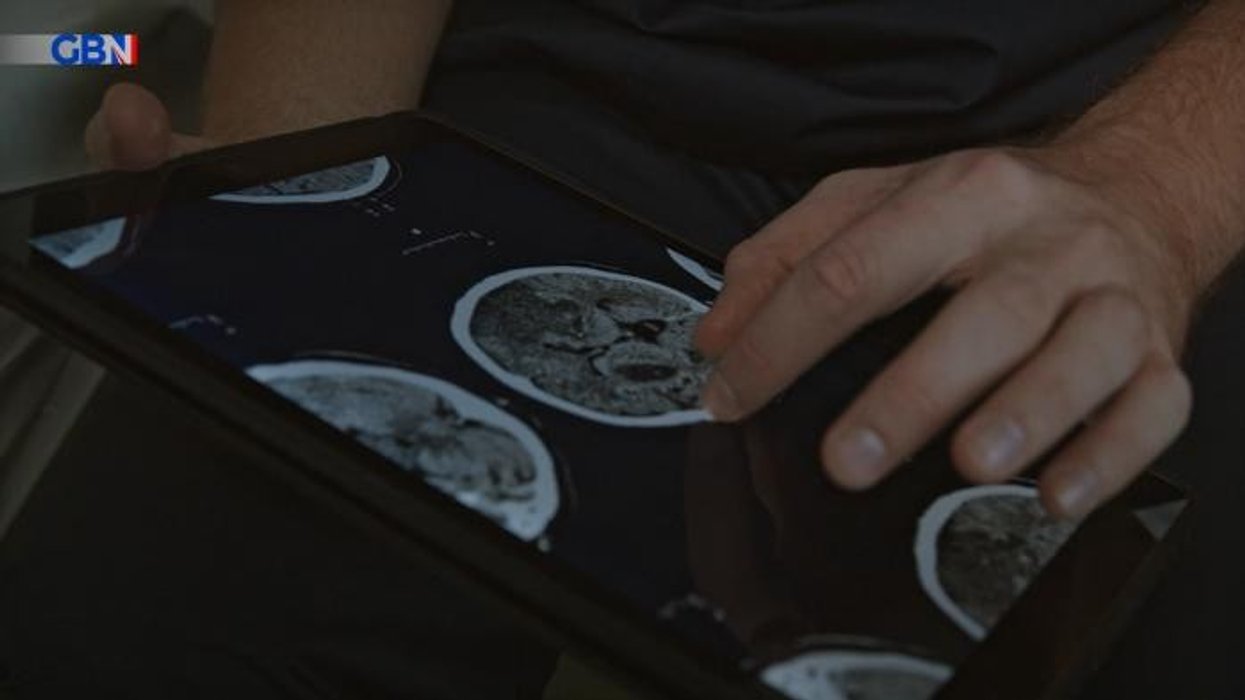Dementia: Expert warns of overlooked brain decline symptom that starts in the nose

WATCH NOW: 5 lifestyle habits make the brain 'resilient' against dementia, says new study
|GB News
'Sensory issues are not always recognised as dementia symptoms,' one carer proclaimed
Don't Miss
Most Read
Memory loss is one of the most frequently cited symptoms of dementia, causing an array of physical indicators to fly under the radar, often overlooked by affected individuals, as well as friends and family.
In fact, the most subtle nuances, such as a change in taste and food preferences, could signal the early onset of dementia, with complaints at mealtimes serving as an early indicator.
On the whole, sensory issues are often overlooked as symptoms of the memory-robbing disease, Michael Berkley-Blezard from Elmfield care home Old Sarum Manor explained, adding that people might begin complaining about their once-favourite meals or even refuse to eat altogether.
"Sensory issues are not always recognised as dementia symptoms and as a result, are not often reported as such," the care specialist said.

Loss of memory is frequently-cited as the top symptom of the memory-robbing disease
|GETTY
While memory problems and behavioural changes are widely recognised as tell-tale symptoms of the debilitating disease, subtle dining table complaints could indicate cognitive decline as well.
The culinary complaints could boil down to a change in how individuals with dementia experience flavours, according to the Alzheimer's Society.
"A person with dementia may begin to develop changes in how they experience flavour. They may start to enjoy flavours they never liked before, or dislike foods they always liked," the charity explained.
These changes can lead to surprising dietary shifts, with lifelong vegetarians might suddenly start to crave meat, while those who avoid certain foods for religious reasons may unexpectedly desire them.
LATEST DEVELOPMENTS:
"Sometimes people with dementia make food choices that don't match their usual beliefs or preferences," according to the charity's guidance.
As the condition advances, these symptoms can become more concerning.
"As dementia progresses, a person may put things that aren't food into their mouth, such as napkins or soap," the Alzheimer's Society has warned.
This behaviour may occur because the person no longer recognises items or their purpose, or they might be hungry and mistake objects for food, the charity explained.
However, there are some practical measures which can help manage these challenging situations.
The Society has recommended removing non-food items from dining tables, locking away harmful substances, and ensuring food remains easily accessible throughout the day.

More subtle signs of dementia can often fly under-the-radar
|GETTY
Additionally, carers are advised to season meals in the kitchen to keep salt shakers and spice containers away from the table.
On the broader matter of noticing other symptoms of the disease beyond taste and smell, Berkley-Blezard identified several additional warning signs that families should monitor, including changes in behaviour, difficulty with familiar tasks, and problems with language or communication.
"If you start to notice any of these signs in your loved ones, try and have a conversation with them about what you have observed and suggest booking a doctor's appointment to discuss the symptoms," he advised.
Anyone observing potential dementia symptoms in a loved one should see their GP promptly.










